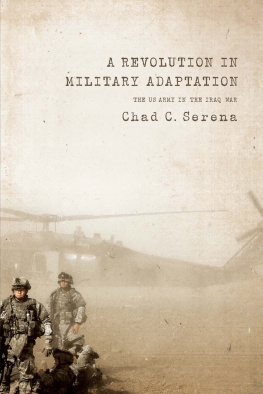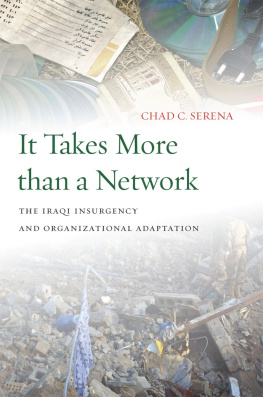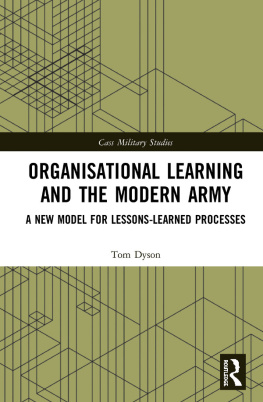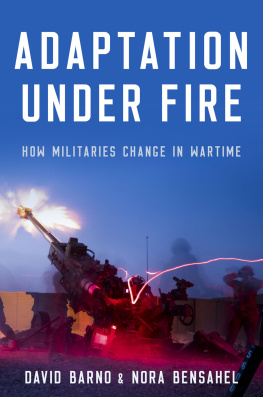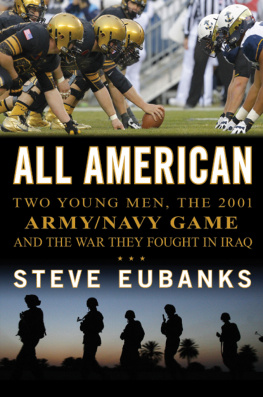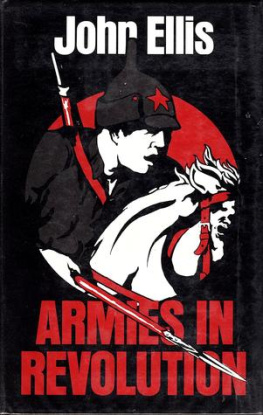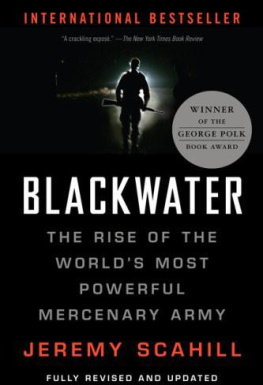Chad C. Serena - A Revolution in Military Adaptation: The US Army in the Iraq War
Here you can read online Chad C. Serena - A Revolution in Military Adaptation: The US Army in the Iraq War full text of the book (entire story) in english for free. Download pdf and epub, get meaning, cover and reviews about this ebook. year: 2011, publisher: Georgetown University Press, genre: Romance novel. Description of the work, (preface) as well as reviews are available. Best literature library LitArk.com created for fans of good reading and offers a wide selection of genres:
Romance novel
Science fiction
Adventure
Detective
Science
History
Home and family
Prose
Art
Politics
Computer
Non-fiction
Religion
Business
Children
Humor
Choose a favorite category and find really read worthwhile books. Enjoy immersion in the world of imagination, feel the emotions of the characters or learn something new for yourself, make an fascinating discovery.
- Book:A Revolution in Military Adaptation: The US Army in the Iraq War
- Author:
- Publisher:Georgetown University Press
- Genre:
- Year:2011
- Rating:3 / 5
- Favourites:Add to favourites
- Your mark:
- 60
- 1
- 2
- 3
- 4
- 5
A Revolution in Military Adaptation: The US Army in the Iraq War: summary, description and annotation
We offer to read an annotation, description, summary or preface (depends on what the author of the book "A Revolution in Military Adaptation: The US Army in the Iraq War" wrote himself). If you haven't found the necessary information about the book — write in the comments, we will try to find it.
Chad C. Serena: author's other books
Who wrote A Revolution in Military Adaptation: The US Army in the Iraq War? Find out the surname, the name of the author of the book and a list of all author's works by series.
A Revolution in Military Adaptation: The US Army in the Iraq War — read online for free the complete book (whole text) full work
Below is the text of the book, divided by pages. System saving the place of the last page read, allows you to conveniently read the book "A Revolution in Military Adaptation: The US Army in the Iraq War" online for free, without having to search again every time where you left off. Put a bookmark, and you can go to the page where you finished reading at any time.
Font size:
Interval:
Bookmark:

Georgetown University Press. All rights reserved. No part of this book may be reproduced
or utilized in any form or by any means, electronic or mechanical, including photocopying
and recording, or by any information storage and retrieval system, without permission in
writing from the publisher.
opinions of the RAND Corporation or its sponsors.
p. cm.
Includes bibliographical references and index.
ISBN 978-1-58901-783-2 (pbk. : acid-free paper)
1. United States. ArmyHistoryIraq War, 2003 2. United States. Army
5. Organizational effectiveness. I. Title.
DS79.76.R484 2011
956.7044 340973dc22
 This book is printed on acid-free paper meeting the requirements of the American National Standard for Permanence in Paper for Printed Library Materials.
This book is printed on acid-free paper meeting the requirements of the American National Standard for Permanence in Paper for Printed Library Materials.Decisions in the PostCold War Period
The Transformation of the US Army
The Invasion of Iraq and Compelled Adaptation
US Army Adaptation: Organizational Inputs
US Army Adaptation: Organizational Outputs and Learning
The US Army and the Post-9/11 International Security Environment in Perspective
Moving Forward
Font size:
Interval:
Bookmark:
Similar books «A Revolution in Military Adaptation: The US Army in the Iraq War»
Look at similar books to A Revolution in Military Adaptation: The US Army in the Iraq War. We have selected literature similar in name and meaning in the hope of providing readers with more options to find new, interesting, not yet read works.
Discussion, reviews of the book A Revolution in Military Adaptation: The US Army in the Iraq War and just readers' own opinions. Leave your comments, write what you think about the work, its meaning or the main characters. Specify what exactly you liked and what you didn't like, and why you think so.

